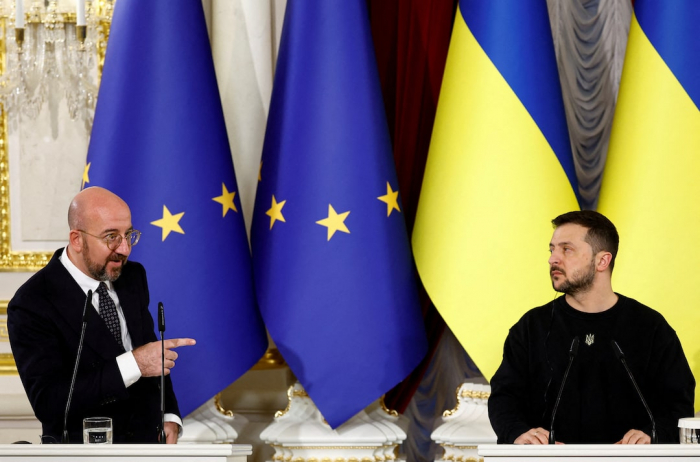Russia's 2022 invasion of Ukraine has given a fresh impetus to the European Union's drive to admit more countries, the bloc's chairman said on Monday, adding he hoped the 27-nation club and prospective new members would be ready by 2030.
European Council President Charles Michel spoke ahead of the 20th anniversary on Wednesday of the EU's "Big Bang" enlargement that added 10 mostly ex-communist nations such as Poland and Hungary but also the Mediterranean islands of Malta and Cyprus to a bloc that had then comprised just 15 members.
"It was a call of history to unite European countries," Michel told reporters of the 2004 enlargement.
"Twenty years later we face a similar challenge because there is this geo-political chaos, including because of this war by Russia against Ukraine. And facing this chaos is the geo-political strategy to reunify once again."
Michel, a former Belgian prime minister, said the 2004 accession countries had seen their shared gross domestic product (GDP) per capita rise from about half of the EU's average back then to 80% now.
Current applicants to join today's EU of 450 million people include six Balkan countries, Ukraine, Georgia and Moldova. Ukraine is by far the largest prospective member, with some 40 million and a large farming sector.
"Because of the war launched by Russia against Ukraine, there is a new impetus, a reinvigoration of the (EU) enlargement strategy," said Michel.
"It is challenging. But what is the alternative? The alternative would be a terrible, irresponsible mistake from the EU," he said, calling for the EU and candidate countries to carry out by 2030 the reforms necessary for a new enlargement.
The EU sees itself as an economic peace project born from the ashes of World War Two. Bulgaria, Romania and Croatia have also joined since 2004, while Britain is the only country ever to leave, following a 2016 referendum.
Some in the West have grown critical of the EU's eastern expansion following years of feuds over the bloc's liberal democratic values with nationalist governments in Poland and Hungary in recent years.
Wealthy members are also wary about admitting a large, relatively poor nation such as Ukraine, which could suck up too many resources from EU coffers. But Michel said the payoff would be boosting the EU's international clout.
"The EU is one of the three major regional forces across the world together with China and the United States. And with this new enlargement the idea is not only to get bigger. It is also be more influential."
He said Kyiv would need special transition arrangements as it will need to rebuild following the war, while the EU would also have to tread carefully in fully opening up to Ukraine's large population and food exports.
Reuters
More about:















































